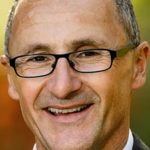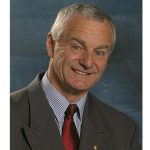Beyond Pill Testing: Calls to Legalise and Regulate MDMA

As far as regularly used licit and illicit drugs go, pure MDMA is one of the least dangerous around. This is an idea that might take some by surprise considering the deaths of five young people – who at least thought they were taking MDMA – at NSW music festivals over the last five months.
Also known as ecstasy, MDMA is one of the most commonly used illicit substances in the country. The 2016 National Drug Strategy Household Survey found that 18.7 percent of people aged between 20 and 29 had tried it, while 24.7 percent of 30 to 39 year olds had.
MDMA is similar in effect to stimulants with mild hallucinogenic properties. And its use took off in the 1990s. Due to its black market production with no quality controls, it can be dangerous, as it’s sometimes cut with other substances that are toxic, or over recent years, the dosage can prove too high.
Calls for pill testing in the community are reaching fever pitch. The ongoing death toll in this state this festival season has sparked the renewed push. And there’s also an increasing understanding that despite its illegality, people have and will continue to use ecstasy.
At a recent pill testing rally in Sydney, NSW Greens MLC David Shoebridge ended his speech with the suggestion that a regulated MDMA market should be established, while veteran drug law reformist Dr Alex Wodak appeared on the Today program on Wednesday calling for the very same thing.
Reducing societal harms
Mr Shoebridge explained that the obvious benefit legal MDMA would bring is that you’d know what you were taking. “You have the ability to have a far safer supply with far greater knowledge about the likely effects,” he said. “It undoubtedly has major public safety benefits.”
The Greens justice spokesperson outlined that there would be tight licensing restrictions around regulated ecstasy. Access would be limited to adults and it would be prohibited for juveniles. But, the finer details would have to be established via a government advisory committee.
The NSW Greens changed its policy late last year in regard to MDMA. The party now advocates for a regulated supply of the drug through a government agency, with the aim of improving public safety. It would not be a commercial supply based on profit and advertising.
“One of the principle reasons why MDMA is identified as dangerous is because it’s sold in an unregulated market controlled by organised crime and bikie gangs,” Mr Shoebridge told Sydney Criminal Lawyers. “You reduce a lot of the current harm by providing it in a regulated environment.”
Horse riding is riskier
Australian Drug Law Reform Foundation president Dr Alex Wodak recalled that former chair of the UK Advisory Committee on the Misuse of Drugs Professor David Nutt and his colleagues ranked MDMA as the 17th riskiest substance out of a list of 20 psychoactive drugs.
Indeed, Professor Nutt was sacked after a private conversation was recorded and leaked to the media, in which he said taking MDMA is statistically less risky than horse riding. It wasn’t “because the comment was wrong, but because it was too politically sensitive”, Dr Wodak made clear.
“The number of MDMA deaths is tiny compared to the likely number of Australians who take the drug,” the doctor explained. “Some hundreds of thousands of Australians take ecstasy every year.”
“The number of Australians dying each year from ecstasy is also tiny compared to the number dying each year from smoking, alcohol or prescription and illicit drugs,” he continued, adding that MDMA deaths receive extensive publicity, while those attributed to smoking and drinking are ignored.
It’s about saving lives
“There are many preventable deaths from ecstasy in Australia,” Dr Wodak went on, “because MDMA is only available from unregulated black market sources and because effective harm reduction measures like accurate pill testing with expert advice on reducing risks are still banned.”
According to the harm reduction expert, prior to heroin being banned in 1953, it was available via prescription and overdose was rare. However, heroin-related deaths increased after it was banned, “from only 6 in 1964 to peak at 1,116 in 1997”.
Former Melbourne University vice chancellor Professor David Penington first recommended that MDMA be sold at pharmacies back in 2012. Dr Wodak explained that whether over the counter availability at chemists would be the best option is up for further discussion.
“The top priority should always be minimising deaths and severe illness rather than how many people take the drug,” Dr Wodak stressed. “If, say, 5 percent more people took MDMA, but 5 percent fewer deaths occurred after regulation, the policy should be regarded as a success.”
An untenable position
Over the long weekend, 25 people aged between 16 and 25 were hospitalised after taking illicit drugs at music festivals around Sydney. In response, NSW premier Gladys Berejiklian reiterated her “just say no” to drugs stance.
Since the first two drug-related deaths at Sydney’s Defqon.1 in September, Ms Berejiklian has continued to refuse to even consider pill testing trials. This is despite rising calls amongst medical practitioners and the wider community for its implementation.
“The premier’s position is one of utter failure and an embarrassing lack of answers. Young people will continue to take drugs regardless of what the premier says,” Mr Shoebridge remarked. “We need to be looking to the evidence about how to make that as safe as possible.”
And it seems clear that if adults were able to purchase quality controlled MDMA over the counter in plain packaging with the contents marked on the side, it would be far safer than buying from some backyard manufacturer with no oversight or guarantees.
“Currently, there’s a policy framework in place that says MDMA – and things that masquerade as MDMA with a series of impurities – will be sold to young people by organised crime without any controls,” Mr Shoebridge concluded. “It’s so obviously wrong and damaging.”







